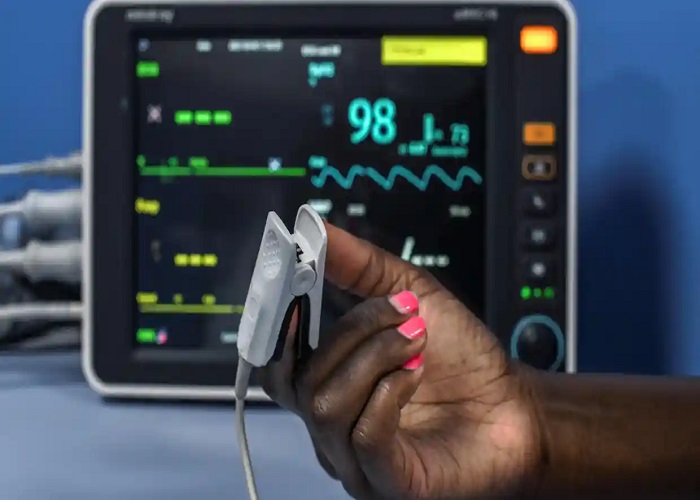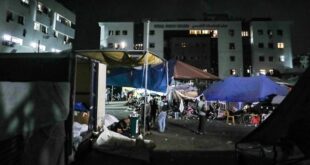
Private hospitals in India and Kenya accused of refusing people on low incomes vital healthcare, or holding them hostage until bills have been paid, benefit from UK government investment funds, according to a report by Oxfam.
Investments worth hundreds of millions of pounds by government-backed agencies are used to facilitate the “impoverishment and even the imprisonment of the very people [the private hospitals] are supposed to be helping”, said the development charity.
A succession of incidents that in some cases have left patients with large debts shows the policy of investing in private healthcare is flawed and should be halted by the UK government, the charity said.
Oxfam’s Sick Development report is a critique of the millions of pounds taken from the UK aid budget and invested into foreign businesses and programmes in poor countries via British International Investment (BII), which is owned and managed by the Foreign, Commonwealth and Development Office.
The report found that the UK government was one of several, including those of France and Germany, and international groups like the World Bank that backed investments by wholly or part state-owned agencies into private healthcare groups, themselves often owned by large US private equity groups.
Development charity says patients denied treatment or held hostage until fees paid in private facilities in India and Kenya
Oxfam said investments by these agencies – known as development finance institutions (DFIs) – into private healthcare providers in low and middle-income countries should be redirected into strengthening public health systems “to help those living in poverty to access healthcare”. It said many of the countries receiving development money for healthcare had become “go-to destinations for health tourists”.
The report found “dozens of cases”, from a BII-funded hospital chain in Kenya, of patients being imprisoned until they paid medical fees.
This included a secondary school student who was held hostage in hospital for 11 months. “There have also been several cases of the hospital refusing to release dead bodies until fees are paid, in at least one case for over two years,” the report said.
In India, private hospitals funded by BII were accused of denying people treatment, “even though they had government health insurance cards entitling them to free care”.
Much of the report focuses on the activities of BII, which is the UK’s DFI. It has a mission to invest in private sector organisations in developing countries to boost growth and achieve the United Nations development goals.
The agency said all its activities are directed towards achieving these goals and supporting private healthcare businesses to “strengthen the quality and accessibility of healthcare in ways which improve the lives of millions”.
A spokesperson said: “Every healthcare system in the world – be they public or private – have isolated incidences of shortfalls in care.
“We take the Oxfam allegations extremely seriously. We investigate all such incidents whenever they come to light and have an established complaints mechanism for anyone to raise matters of concern.
“We continue to encourage Oxfam to share any evidence they hold of these alleged cases so that we can accelerate our investigations.”
The World Bank’s DFI, the International Finance Corporation, said it was always concerned by “improper healthcare delivery” in hospitals where it invested, but “private sector-led innovations such as digital health solutions can allow providers to help augment health systems’ capacity and capabilities and reach people who are vulnerable, poor or living in hard-to-reach rural areas”.
Oxfam said the evidence from its research in India, Kenya and Nigeria was that private hospitals failed to honour promises to accept accident and emergency cases and the profit-motive meant cases of financial or medical abuse were covered up.
The charity’s senior health policy adviser, Anna Marriott, who investigated many of the claims made against individual hospitals, said more than 90% of BII’s health investments were “out-of-sight and unaccountable, made via fee-charging and profit-hungry private equity funds mostly domiciled in tax havens”.
An inquiry by the all-party international development committee into the UK’s use of DFIs is due to be published next month.
“This is far more than just a case of a few bad apples. Wherever we looked we found cases of exclusion or exploitation and some appalling human rights violations,” said Marriott.
Oxfam’s local representatives spoke to people who were pushed into poverty by health fees of up to $36,000 (£29,000), the report said. “There were also cases of emergency patients, including a stab victim, not being treated until relatives turned up with cash.”
The report said BII-funded private hospitals were found charging “astronomical fees for maternity care”. In one hospital in Nigeria, the fee for an “uncomplicated birth” was the equivalent of 12 years’ wages for the poorest 10% of the population. A caesarean section cost the equivalent of 24 years’ wages, the report said.
Marriott said: “Every second, 60 more people are pushed into poverty by catastrophic health costs, and instead of helping to tackle the problem this way of spending UK aid is fuelling it.
“At a time of spiralling need and decimated aid budgets, it’s more crucial than ever that any development funding for health is spent as effectively as possible to reach those without access to healthcare.”
World Opinions –Theguardian.com









